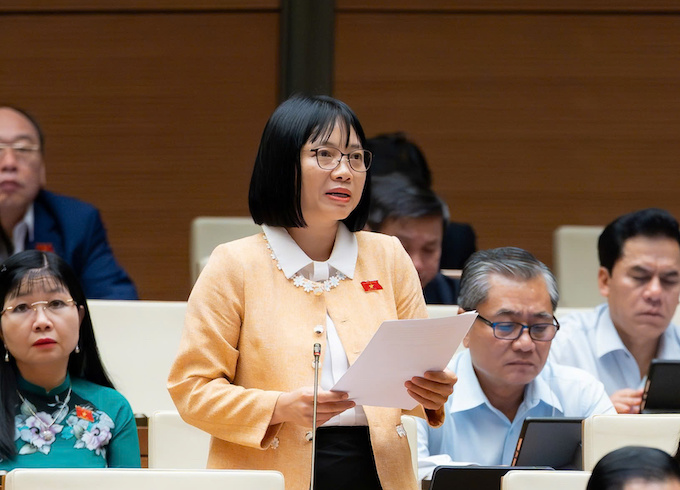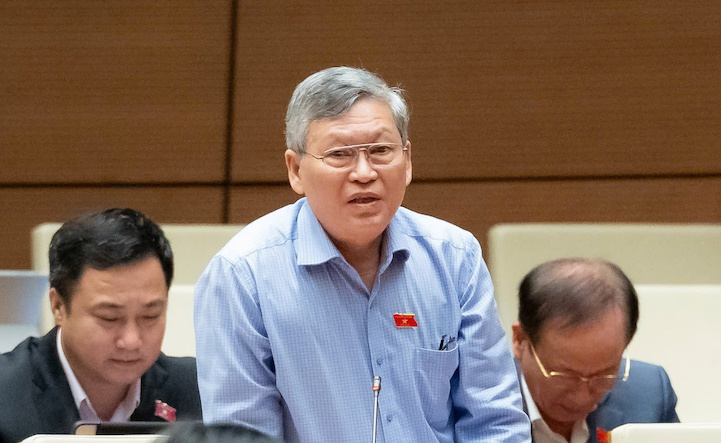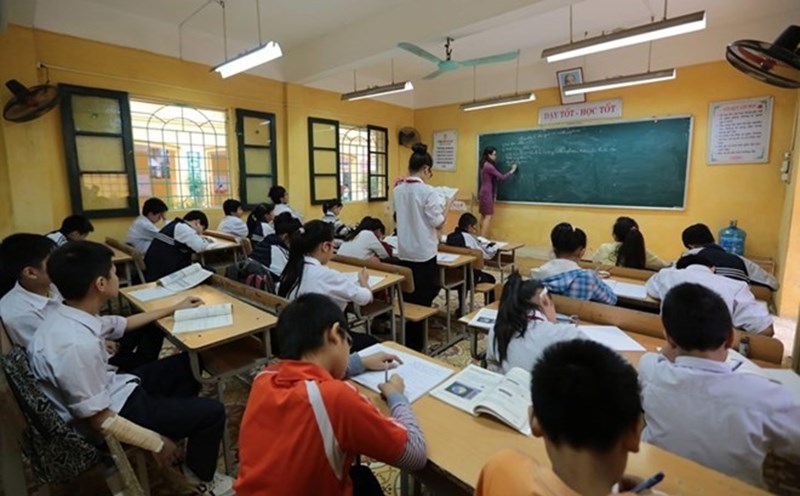On the afternoon of November 10, continuing the program of the 10th Session, the National Assembly discussed in the hall the draft Population Law.
Maternity leave policies need to be more flexible
Delegate Nguyen Thi Viet Nga (Hai Phong Delegation) expressed her agreement with the development and promulgation of the Population Law.
Regarding the regulation on increasing maternity leave when giving birth to a second child, point a, clause 1, Article 13: Increase maternity leave when giving birth to a second child: Women are entitled to an additional months leave.

The delegate said that this regulation needs to be carefully considered because when extending maternity leave for female workers, businesses will tend to be afraid of recruiting or arranging female workers in important positions due to concerns about work interruptions and arising costs. This may unintentionally become a barrier for female workers and increase the risk of gender discrimination in the recruitment and use of female workers.
In addition, for the current group of women, there is a trend to value their careers, especially young workers, high-quality workers, policies to increase maternity leave that can create a fear of having a second child, ...
"For this measure, there should be open regulations, there should be discrimination between groups of occupations, sectors, and areas before applying. At the same time, it is necessary to supplement measures to support businesses, reduce the cost of female workers, as well as have policies to ensure equal promotion opportunities for women after maternity leave" - the delegate said.
Instead of focusing only on extending maternity leave for women, the Vietnamese delegate suggested expanding more substantial support policies to reduce the burden on women in giving birth and caring for children. One of the issues that needs attention is the development of a system of kindergartens and childcare facilities from 6 months old, creating conditions for women to return to work earlier if they have a need.
In addition, it is necessary to change the thinking in policy making, so that it is stipulated that both husband and wife can take a long break to take care of their newborn child, instead of only stipulating that women can take a long break as at present.
The delegate suggested that a flexible mechanism could be considered, in which the total break time for both husband and wife is not more than 7 or 8 months, depending on the family's allocation. This approach both ensures that children are cared for and promotes the sharing of responsibility between father and mother, reducing pressure on women in the postpartum period.
"With the support of breast pumps, suction - storage - storage equipment, mothers do not have to be around their children continuously but can still ensure that their children are fully breastfed for the first 6 months of life according to the recommendations of the health sector. Therefore, the maternity leave policy needs to be more flexible than before" - the Vietnamese-Russian delegate expressed his opinion.
Proposal to support women of all ages to have 2 children

Regarding maintaining the replacement fertility rate, Delegate To Van Tam (Quang Ngai Delegation) said that according to Point b, Clause 1, Article 13, there are 3 subjects receiving financial support: Ethnic minority women, ethnic minority women; women giving birth to two children before the age of 35, local women with low replacement fertility.
According to him, the regulation of only supporting women to have two children before the age of 35 is not really reasonable and fair, creating discrimination for those who have two children after the age of 35 because many women give birth after the age of 35 is not intentional but due to many objective reasons such as economic conditions, work pressure, career, personal circumstances or because they have not found a suitable partner... They still fulfill their responsibility to have two children but do not enjoy support policies, which is unfair and uncomprehensive.
"The system needs to regulate synchronously, in the direction of supporting women to have two children at all ages. Moreover, it is necessary to have policies to protect the health of mothers and children, support services to ensure equal rights in labor and employment - the delegate proposed.
In addition, he proposed that localities should be empowered to specify the subjects and support levels depending on actual conditions, instead of strictly fixing them according to age.
Regarding measures to maintain replacement fertility rates, the delegate commented that the current regulations only focus on the responsibility of state agencies. He proposed to study and expand the subjects of participation, encourage economic organizations to join hands in implementing population policies.
In reality, many women raising young children do not dare to quit their jobs due to income pressure - he stated the reality and said that businesses should be responsible for supporting and creating conditions for workers to effectively implement this policy.












